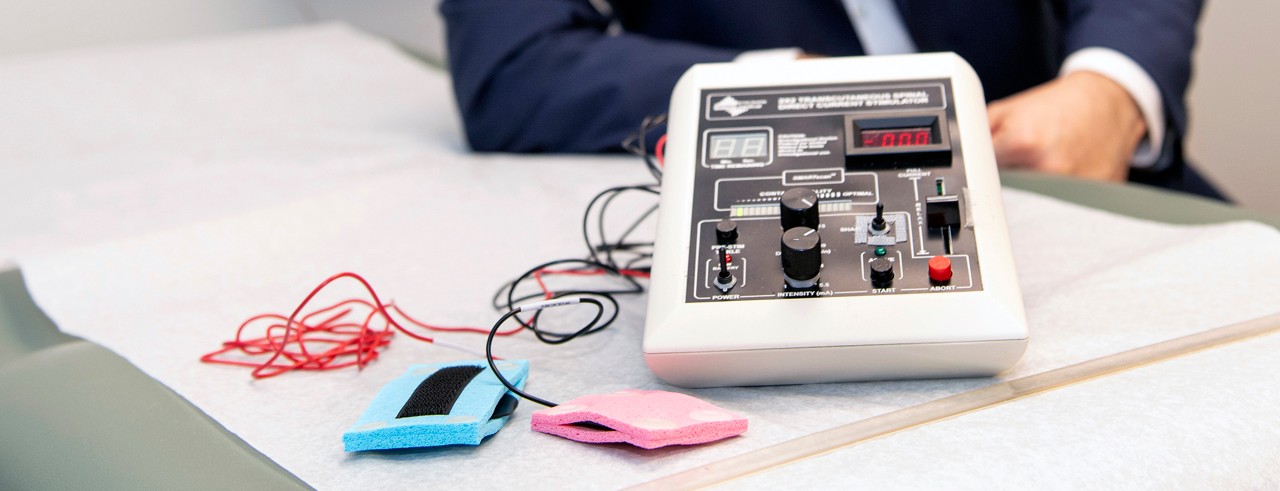
U.S. News & World Report: Could spinal cord stimulation ease depression?
U.S. News & World Report highlighted a recent University of Cincinnati trial that found electrical stimulation of the spinal cord is feasible, well-tolerated and shows therapeutic potential to treat depression.
The results of the trial were published in the journal Molecular Psychiatry on Dec. 20.
Principal investigator Francisco Romo-Nava, MD, PhD, said pathways of neurons located in the spinal cord convey information from the body to regions of the brain that are involved in the emotional experience we know as mood. When functioning properly, the brain uses this information to constantly make adjustments to help regulate a person’s mood.
While major depressive disorder can have many different causes, one contributor could be this pathway being overloaded with information.
Romo-Nava obtained a patent in 2020 for noninvasive spinal cord stimulation designed to decrease the flow of information in the brain-body circuit so that the brain is better able to readjust and regulate itself.
A total of 20 patients were enrolled in the trial, with half randomized to receive the active version of the spinal cord stimulation and half receiving a different version of current that was not expected to have much of an effect.
Patients went to the Lindner Center of HOPE for three 20-minute sessions a week for eight weeks, for a total of 24 spinal stimulation sessions.
Romo-Nava said like with most pilot studies, the primary focus of the study was the feasibility and safety of the intervention and how well patients tolerated the stimulation. The study was designed so that the dose of stimulation could be decreased if needed, but Romo-Nava said all patients tolerated the initially prescribed dose well.
“We used a current that is so small that it’s about 10 times smaller than the one known to induce tissue damage, so that’s also pretty encouraging because there’s a lot to explore in terms of what is the optimal dose and session frequency,” said Romo-Nava, associate professor in the Department of Psychiatry and Behavioral Neurosciences at UC, associate chief research officer for the Research Institute at the Lindner Center of HOPE and a UC Health physician scientist.
Read the U.S. News & World Report story.
Featured photo at top of spinal cord stimulation device and electrodes. Photo/Colleen Kelley/UC Marketing + Brand.
Related Stories
UC, Children's join $20 million statewide research effort
August 16, 2024
The Cincinnati Business Courier highlighted the University of Cincinnati and Cincinnati Children’s being part of a collaborative research initiative designed to identify the root causes of the ongoing epidemic of persistent emotional distress, suicide and drug overdose in the state of Ohio.
Cape Girardeau, Missouri news highlights UC clinical trial
February 20, 2024
KFVS-TV in Cape Girardeau, Missouri highlighted a University of Cincinnati clinical trial testing a wearable neurostimulation device to help patients with opioid use disorder and post-traumatic stress disorder stick with medication treatment while finding the right dose.
U.S. News & World Report: Metformin may help young patients with bipolar disorder avoid weight gain
October 31, 2023
U.S. News & World Report highlighted recent research led by the University of Cincinnati and Northwell Health that found the drug metformin can help prevent or reduce weight gain in youth taking medication to treat bipolar disorder.
